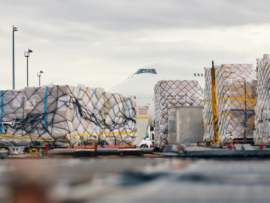
US shoppers will no longer receive duty-free imports under $800, as a White House order ending the de minimis exemption takes effect on Friday, Aug. 29. The move is expected to increase costs for millions of small packages.
Signed by President Donald Trump on July 30, the executive order imposes tariffs on all imported parcels, ending decades of tax-free allowances that fueled the growth of low-cost e-commerce.
Every shipment, regardless of value, is now subject to duties
The order states that every shipment is now subject to duties, “regardless of value, country of origin, mode of transportation, or method of entry.” By removing the exemption entirely, the White House framed the change as necessary to block fentanyl trafficking, close loopholes that let shippers disguise goods, and address persistent US trade deficits.
As a stopgap, parcels moving through the international postal system can be assessed a flat duty of $80, $160, or $200 per item, depending on the origin country’s tariff rate, but only for a period of six months. After that, all low-value imports must follow the full tariff schedule.
Global mail carriers scramble to adjust to tariff changes
The repeal has thrown postal networks into disarray. Reuters reported that Australia Post, Deutsche Post, Japan Post, and Korea Post all paused shipments to the US as they worked out how to collect duties for the first time. Britain’s Royal Mail only resumed operations after introducing a “delivery duties paid” service, which requires customers to cover tariffs and a handling fee upfront.
US Customs and Border Protection now requires detailed declarations on every package, including the type of goods and their country of origin. Reuters noted that the shift has created paperwork bottlenecks for sellers and slowed deliveries at the border. Clint Reid of logistics firm Zonos told the outlet it was “very challenging for the post to go into an environment where they have to collect duties, when they’ve never collected duties.”
The White House order also empowered customs to tighten enforcement. According to the executive order, carriers moving international postal shipments may be required to hold bonds to guarantee duty payments, while importers must file new entries through the Automated Commercial Environment system.
Import charges turn online orders into costly deliveries
American shoppers are already finding unexpected costs at their doors. Bloomberg reported that a gamer in Louisiana was hit with a $934 tariff bill after ordering computer parts from Germany that included components sourced from China. In another case, a college senior in Alabama received a $190 charge weeks after his Italian-made boots arrived from a Canadian seller.
Small businesses warn they cannot absorb the new costs. According to the BBC, Buenos Aires-based shoe label Zou Xou fears the end of duty-free shipping “might be the end” of its US sales. UK-based Merchant & Mills told customers it had raised American prices by 15% to offset duties.
Retailers brace for fallout
Larger players are also feeling the squeeze. According to the BBC, Tapestry, the parent of Coach, projected a $160 million profit hit from tariff changes, with about a third tied to the loss of the de minimis exemption. Meanwhile, Temu — after losing its China carve-out in May — halted direct sales to the US, while Shein has begun adjusting its prices.
Marketplaces are bracing too. Reuters reported that eBay and Etsy have toldƒ sellers to alert customers to higher costs, showing the end of de minimis is being felt across online retail.
As US shoppers face new tariffs, the White House is also targeting Europe, with Trump threatening sanctions on EU officials over a law he says censors American voices.
Source of Article



